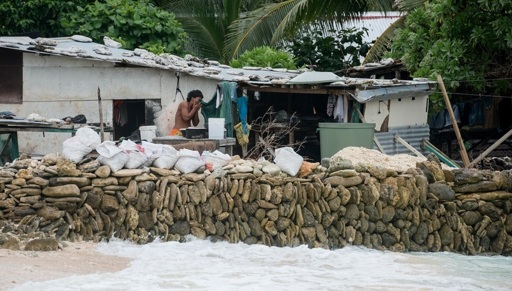Mohamed Adow is the Founder and Director of Power Shift Africa
A sobering truth hangs over the COP30 climate talks in Belém: negotiators are discussing adaptation indicators with the enthusiasm of technocrats while quietly starving frontline communities of the resources they need to survive.
The UN’s latest adaptation gap report could not be clearer. Needs are skyrocketing. Finance is collapsing. And yet the global community continues to debate how to measure progress, rather than how to enable it. They act as if weighing a cow will make it fatter, rather than giving it any food.
This contradiction exposes the heart of the climate crisis: adaptation is not merely a technical challenge; it is a political and moral one. Every finance gap is a justice gap. Behind every unmet target are farmers who cannot plant, families who cannot rebuild, and communities forced into displacement because “resilience” was promised but never delivered.
Adaptation is the difference between dignity and despair. It determines whether societies can endure rising temperatures, intensifying floods, or prolonged droughts — or whether they are pushed beyond the limits of survival.
Yet, as negotiators haggle over the Global Goal on Adaptation (GGA) and its indicators, the foundations needed to achieve these goals are crumbling. How do we talk about climate-resilient development when the means to achieve it are drying up? How do we measure resilience while draining the very resources that make resilience possible?
 Nov 13, 2025Politics
Nov 13, 2025Politics
COP30 Bulletin Day 4: African and Arab groups want adaptation indicator delay
The groups are concerned that the current indicators will pressure them to spend more of their own governments’ scarce funds on adaptationRead more Nov 14, 2025Politics
Nov 14, 2025Politics
COP30 Bulletin Day 5: COP30 could greenlight work on a fossil fuel transition roadmap
At the climate talks in Belém, governments are considering whether to launch a process to craft a roadmap and how that might lookRead more Nov 15, 2025News
Nov 15, 2025News
COP30 Bulletin Day 6: First week ends with a colourful march and much work left to do
UN climate chief Simon Stiell tells governments “to give a little to get a lot”, as many thorny issues remain for ministers to resolve next weekRead more
At COP30, countries must resist the impulse to rush through a weak indicator framework simply to claim progress. This would give us a system that measures activity, not impact. – that measures paperwork, not protection.
Africa is championing a fit for purpose GGA, but some have misunderstood and wrongly accused it of stalling the GGA process. But Africa is not delaying adaptation work. Africa is living adaptation every day. For us, adaptation is not a choice or a policy preference or an interesting side issue. It is an existential threat that is already reshaping livelihoods, economies, and ecosystems.
Africa needs this COP to get the GGA right. What we reject is an approach that turns adaptation into an exercise in reporting rather than a vehicle for survival.
A meaningful GGA must track whether finance actually reaches those who need it, whether technologies are shared equitably, and whether vulnerable countries are being supported to build early-warning systems, climate-resilient infrastructure, water security, and heat-resilient health systems. Without this backbone of finance and technology-sharing by the rich world, adaptation indicators become little more than an empty checklist.
And this is where COP30 stands at a crossroads. If rich countries succeed in pushing through a set of indicators that sideline finance, it will confirm that the world’s poorest are once again being asked to run a race with no shoes. No community can adapt without resources. No farmer can withstand worsening heatwaves without irrigation and drought-resistant seeds. No coastal town can protect its people without early-warning systems and resilient infrastructure. To pretend otherwise is not merely flawed policy; it is a profound injustice.
 Nov 7, 2025Comment
Nov 7, 2025Comment
Let’s tax luxury air travel to fund climate adaptation and loss and damage
Taxes on private jets and first and business class would be fair, popular and bring in tens of billions of dollars each year to help countries cope with climate changeRead more Oct 30, 2025Investigations
Oct 30, 2025Investigations
Business-as-usual: Donors pour climate adaptation finance into big infrastructure, neglecting local needs
A deep-sea port project in Bangladesh highlights how some major donor nations are labelling funds for industry-friendly transport and energy projects as adaptation finance, reporting by Climate Home News showsRead more Oct 29, 2025News
Oct 29, 2025News
Global South’s climate adaptation bill to top $300 billion a year by 2035: UN
Warning over massive shortfall in climate adaptation funding comes days before COP30 in Brazil, where the issue is set to be a major themeRead more
Some will argue that indicators and finance should remain separate discussions. But this is a fiction. You cannot track progress on adaptation without the means to adapt. Adaptation is where political decisions determine whether people live safely or suffer needlessly.
The world is not short of evidence of this suffering, it is short of political courage. Extreme weather displaces more than 30 million people a year, with Africa bearing the brunt. While communities rebuild with scarce resources, developed countries continue to cut aid or repackage support as loans which shackles poor countries with eye-watering debt. This does not build resilience — it entrenches vulnerability.
The Global Goal on Adaptation will become a white elephant if it is not paired with predictable, grant-based finance. Indicators that pretend adaptation is happening without resourcing it will fail the people they claim to protect. COP30 is the moment to close the distance between science and solidarity: wealthy nations must scale up adaptation finance, share technologies, and support long-term resilience planning.
Until then, the world’s most vulnerable will continue carrying the heaviest burden with the lightest support — a defining injustice of our time.
The post Global Goal on Adaptation: Weighing the cow won’t make it fatter appeared first on Climate Home News.
From Climate Home News via this RSS feed

